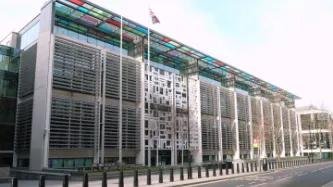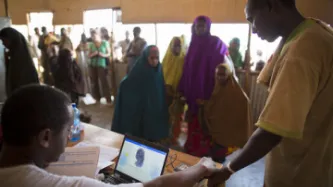Search
Content type: News & Analysis
On 24 October 2019, the Swedish government submitted a new draft proposal to give its law enforcement broad hacking powers. On 18 November 2019, the Legal Council (“Lagråd”), an advisory body assessing the constitutionality of laws, approved the draft proposal.
Privacy International believes that even where governments conduct hacking in connection with legitimate activities, such as gathering evidence in a criminal investigation, they may struggle to demonstrate that hacking as…
Content type: News & Analysis
Photo: The European Union
“Border Externalisation”, the transfer of border controls to foreign countries, has in the last few years become the main instrument through which the European Union seeks to stop migratory flows to Europe. Similar to the strategy being implemented under Trump’s administration, it relies on utilising modern technology, training, and equipping authorities in third countries to export the border far beyond its shores.
It is enabled by the adoption…
Content type: News & Analysis
Privacy International has joined over 30 organisations working with migrants and refugees to write to the newly appointed British Home Secretary to raise a number of pressing issues, which require action if the immigration and asylum system is to regain the trust of the public.
The letter below was sent to the Home Secretary on Wednesday, 30 July 2019.
Find out more about PI’s work to demand a more humane approach to immigration based on the principles of fairness, accessibility, and respect…
Content type: News & Analysis
US Immigration and Customs Enforcement (ICE), the agency at the centre of carrying out President Trump’s “zero tolerance” approach to immigration enforcement and family separation, has for years been contracting a US surveillance company to intercept peoples’ communications across the United States. The wide potential scope for the use of the powers raises concerns about their use for the real-time surveillance of people, families, and communities caught up in Trump’s immigration crackdown…
Content type: Advocacy
Refugees are among the most vulnerable people in the world. From the moment they flee their homes, as they pass through 'temporary' places such as refugee camps and detention centres to their 'final' destinations, they are continuously exposed to threats. In the digital age, these threats are increasingly being driven by the processing of vast amounts of highly sensitive personal data: from enrollment and registration processes needed for them to access services, to their identification and…
Content type: News & Analysis
According to the International Organization for Migration, an estimated 258 million people are international migrants – that is, someone who changes their country of usual residence, That’s one in every 30 people on earth.
These unprecedented movements levels show no sign of slowing down. It is predicted that by 2050, there will be 450 million migrants across the world.
Nowadays, it is politically acceptable to demonise migrants, and countless leaders have spewed divisive and xenophobic…





